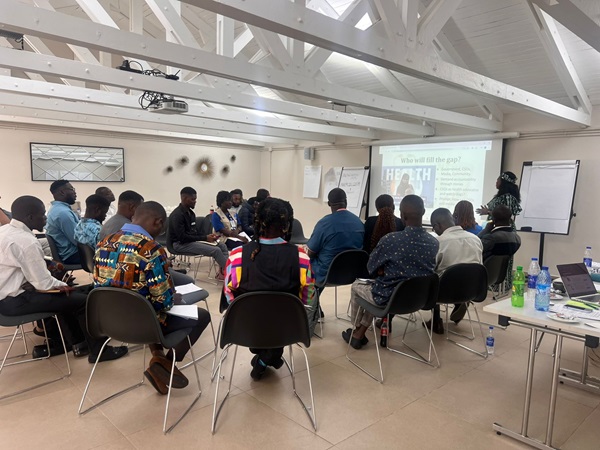
Health journalists and broadcasters across West Africa have voiced concerns that critical stories on HIV, tuberculosis (TB) and malaria are consistently sidelined in newsroom agendas, often surfacing only during sensational outbreaks such as Ebola or Lassa fever.
This concern was passionately discussed during an engaging session at the Breaking Down Barriers health journalism and civil society workshop, organised by the Thomson Reuters Foundation with support from the Global Fund.
According to Science Nigeria, participants from broadcast, print and online media platforms expressed frustration that chronic and high-impact health issues struggle for attention in a landscape dominated by politics and crises.
Martha Okere, a reporter with Wazobia FM, Nigeria, said unless there is an alarming outbreak or scandal, many editors relegate health stories to the back burner.
“If it isn’t a dramatic outbreak or scandal, stories on HIV, TB, or malaria are seen as soft news or not urgent enough to compete with politics or security,” Okere lamented.
In response, Bukola Adebayo, inclusive economies correspondent at the Thomson Reuters Foundation, urged colleagues to rethink how they pitch and frame health stories. She encouraged reporters to embrace solutions journalism, human-interest angles and community-led innovations.
“Editors respond to compelling pitches that show urgency, novelty, or human connection,” Adebayo said. “A community distributing malaria test kits or a local group running HIV outreach in remote areas can be headline-worthy if told powerfully.”
She advised journalists to leverage commemorative days such as World AIDS Day or World Malaria Day as natural entry points for pitching stories that align with news cycles and catch editors’ interest.
Adebayo also pointed out structural hurdles that hinder robust coverage, including delayed access to reliable health data and difficulties securing interviews with people directly affected due to fear of stigma.
“When you cover HIV or TB, it’s hard to get affected persons to speak on record because stigma remains very high,” she noted.
However, she highlighted that patient networks and community advocacy groups, like the Network of People Living with HIV, can be valuable partners for sourcing credible human stories.
She stressed the importance of building trust with these groups to ensure ethical storytelling and protect vulnerable sources.
“This is why closer collaboration between CSOs and the media is so crucial,” Adebayo added. “We have the lived experiences, but we need journalists who will represent our stories with dignity and accuracy.”
She further encouraged journalists to craft pitches with clear relevance.
“You don’t always need drama, but you must convince an editor why this story must be told now. If a community is bridging a gap left by donors, or a woman travels miles for TB treatment, that’s impact journalism,” she said.
Madina Kula, a reporter from Sierra Leone, echoed these sentiments, urging newsrooms to push health stories into primetime instead of treating them as filler content.
“People are dying quietly because we do not make enough noise when there’s no outbreak grabbing attention,” Kula said firmly.
Participants agreed that transforming health coverage requires deliberate, innovative storytelling that keeps the public informed and pressure on policymakers constant, even between emergencies.
The workshop continues with joint brainstorming sessions between CSOs and journalists, focusing on amplifying human rights and equitable access to healthcare for vulnerable communities across West Africa.

